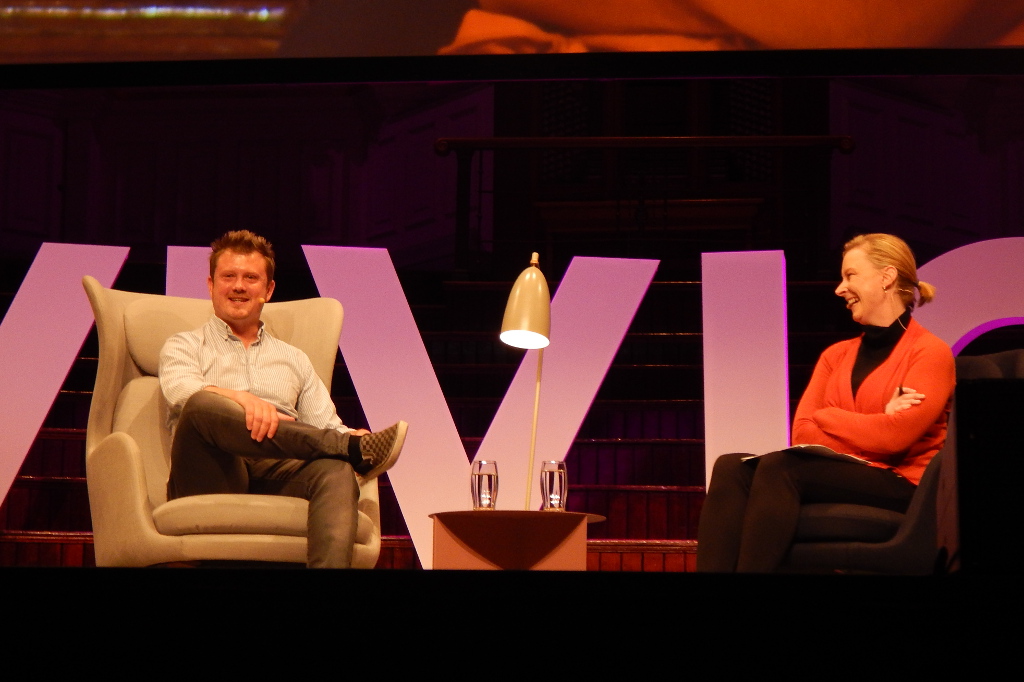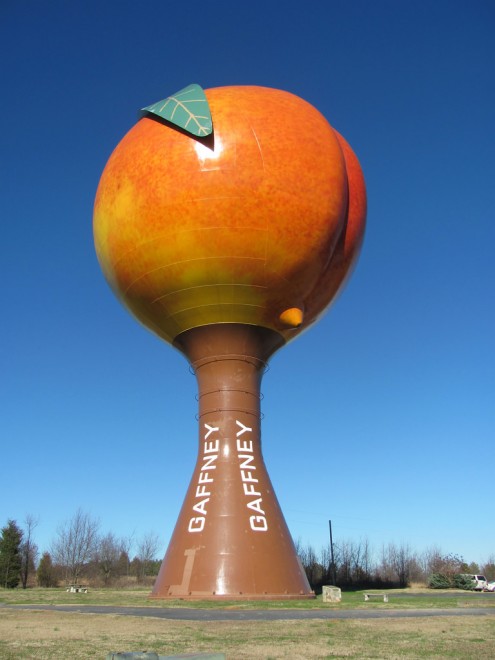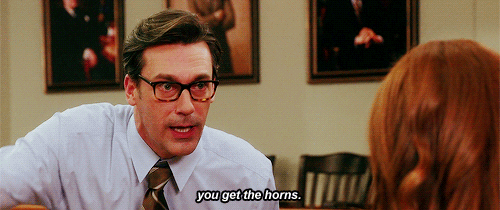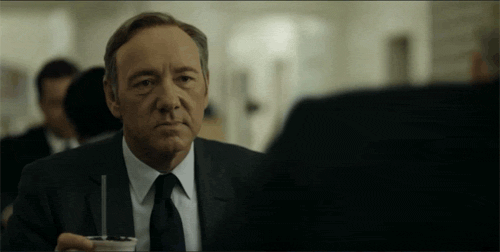8 Things We Learned About ‘House Of Cards’ At Beau Willimon’s Vivid Ideas Talk With Leigh Sales
The term "crack the shits" might be in the next season.

Vivid Sydney, which kicked off this weekend, is full of beautiful things. The Opera House is coated in Indigenous stories told through the songlines of land and sky. Bon Iver and Anohni are putting on incredible shows. People are taking selfies inside an enormous luminous vagina at Circular Quay.
That being said, the most beautiful thing I’ve seen so far is Leigh Sales explaining the term “crack the shits” to House of Cards writer and showrunner Beau Willimon. “I’ve been giving Beau a bit of an education out the back in Australian vernacular,” she said on-stage at Sydney Town Hall last night. “I used the term ‘cracking the shits’.”
“That will definitely end up in the next thing I do,” Willimon replied, to the rapturous applause of close to 1,000 people. “I don’t even necessarily know what ‘crack the shits’ means. It’s an all-purpose thing. I’ll go to a deli and someone will hand me my coffee and I’ll say ‘crack the shits!’. I’ll call my mum: ‘Happy Mother’s Day, bye, I love you, crack the shits!'”
Though I could have listened to an Emmy-nominated screenwriter wrestle with the intricacies of Australian idiom for the full hour, the pair were there to chat about bigger things. Here are a few interesting facts which came from their fascinating 90-minute ‘Game-Changers’ talk about House of Cards:
–
The Gaffney Peachoid Is Real
The first thing you should know is, Leigh Sales is a huge House of Cards fan. She started probing Willimon about the creation of Frank Underwood’s character straight off the bat, and this led to some great trivia about his backstory.
“[My dad grew up in] a place called Greenville; we still have a plot there with a goat farm I visit occasionally,” Willimon said. “When I was first thinking about where Frank Underwood should come from… I said ‘I want him to come from a place no one’s ever heard of; a forgotten smudge on the side of the road. Immediately, he said Gaffney. I Googled Gaffney and immediately saw the Peachoid, and as soon as I saw the Peachoid, I was sold. The Peachoid is real.”

“I went to Gaffney and met the mayor — he’s a Democrat, actually — Henry ‘Chicken’ Jolly. That’s his name. He took me on a tour of the Peachoid, and I was never going to change after that.”
–
There Are Some Specific Reasons Frank’s A Southern Democrat
“In the UK version, Frank is Francis Urquhart,” Willimon said, responding to 7.30-style questions about his character’s politics. “He’s from the artistocracy, he’s a Tory. I thought it would be much more interesting for [his American counterpart], in 2016, to embody the American mythology that this anyone can be president and come from nothing.
“The first reason I chose the south — and South Carolina in particular — was because of the phrase [in the original series]: ‘You very well may think that, I couldn’t possibly comment’. If you say that with an aristocratic British accent, it totally works. It doesn’t with an American unless when you use a South Carolinian upcountry accent.”
Willimon also noted the South had an interesting history when it came to the Oval Office — one which can make for unique and dynamic characters.
“A disproportionate number of presidents have come from the South,” he said. “Also, since the ’60s or ’70s it’s been very conservative… but there are these hold-out Democrats: Yellow Dog Democrats. They sort of exist outside of ideology and more in the realm of personal relationships. They have an innate political instinct. They’re able to survive.”
“Also if I made him a Republican from the South, it would have seemed like ‘liberal Hollywood’ was taking potshots at the party. I didn’t want that to get in the way of the story.”
–
It’s All Started With Visual Art
Though Willimon has found immense success with political works for the stage and screen — before House of Cards, he wrote the critically-acclaimed play Farragut North which was eventually adapted to the Oscar-nominated film The Ides of March — he never started out this way.
“I stumbled into writing. I was a painter long before anything. I could draw pretty well years before I could read of write with any real proficiency… But, people who can draw well are a dime a dozen — it’s the same way people can play instruments well from an early age. There’s a difference between people that can rely on natural facility and those who can extend that into something meaningful and substantive. I began to get really frustrated in college because, while I could paint well and impress a lot of people with it, I didn’t have a real voice and it was all over the place.
“As a break from painting, I decided to write a play. I did theatre in high school — in fact, my high school had this incredible drama teacher who taught Jon Hamm a few years before me and Ellie Kemper a few years behind me.

FYI, at one point Jon Hamm was also Ellie Kemper’s drama teacher.
“I can’t act to save my life though. I realised if I was going to explore this, it’d be through writing. I wrote a play, mostly to force myself to do something I hadn’t done before; maybe it would teach a kind of discipline that would help with my painting. The play was called The Goat Herd — it was based on the goat herd at my family’s place and it also involved a manned mission to Mars and Muhammed Ali. As cool as that sounds, it was terrible.
“What it did make me realise is that: painting is a static medium. There’s only so much you can fit in there — you can fit a lot — but I wanted my stories to move and to breathe.”
–
EVERYTHING IS LIES
Despite Willimon’s admission that he doesn’t have a natural faculty for writing and has to “constantly claw” at the practice, Sales probed him on his masterful work on the series. The screenwriter deflected a large portion of the praise onto his talented lead actors Kevin Spacey and Robin Wright.
“We use language to lie to teach other and most great actors read between the lines,” he said. “Harold Pinter, the Nobel-winning playwright said (and I’m totally butchering this) ‘Language is used to obscure truth, and the truth is what’s found in the space between language’. I think that’s mostly true. We tend to lie most of the time — not necessarily in an intentionally duplicitous or deceptive way. But a lot of the stuff we say is really a deflection from what we’re actually thinking.
“If you look at someone’s hands or their mouth while they’re talking to you, it’ll tell you far more than their actual words. What dialogue is able to do in a play or script is create the sea of lives that are punctuated by moments of truth. Weirdly, in the sea of lies, there are clues to what the underlying truth is. Actors are able to uncover that and three-dimensionalise that in their body. It’s voodoo.”

Very true.
–
Likability Is Shit
In case you were wondering, Beau Willimon does not care in the slightest if you like Frank and Claire.
“I’m on record and I’m going to quote myself: ‘fuck likability’,” he said when pressed by Sales. “I don’t care about likability in anything that I write or I watch. Likability is a term of commerce — that’s some notion by someone in an office that if you don’t have characters that are likeable, they’re going to alienate your audience. I think, not just the last 20 years of television, but the last 500 years of drama have shown that likability is nonsense as a concept.
“Look at Shakespeare’s greatest characters, the ones that we keep talking about for centuries and the most interesting ones are not likeable. Hamlet is not likeable. Hamlet’s a villain, in fact according to Orson Welles and he knew a thing or two about Shakespeare. Richard III, Iago… because we’re technically on a stage I’m not going to say the ‘M’ one. They’re not in the least bit likeable. What are they then? Why are we drawn to them?
“They gives us access to the most mysterious and difficult to grapple with versions of ourselves; that makes them attractive. I don’t mean sexually, although sometimes that’s the case. We’re attracted to the part of them that’s also a part of us; the one we constantly try to submerge and subvert. And yet, in those unlikeable characters, in those villains, we see that amplified and expressed in a way that liberates us from ourselves.
“That’s way more important than likability.”
–
Frank Underwood’s Name Came From Margaret Thatcher
Once again discussing the transition from the UK’s Francis Urquhart to the US Frank Underwood, Willimon gave a shoutout to where it all began.
“Michael Dobbs, who wrote the original source material, had worked for Maggie Thatcher and they had had a falling out. He was fuming from that and all he could think was ‘F you, F you, F you’. So, he began writing that first novel out of pure vengeance — which explains a lot.
“The cufflinks at the end of the second season’s first episode were a little nod to Lord Michael.”
Willimon said Dobbs actually wept when he watched it.
–
President Obama Is A Big Fan
“At one point he tweeted ‘no spoilers for the show!’ and I was just like… ‘there are far more important things you could be doing’,” Willimon said.
Tomorrow: @HouseOfCards. No spoilers, please.
— Barack Obama (@BarackObama) February 13, 2014
“I don’t even know how to process that. I’ve tried to, out of deep narcissism, imagine President Obama on Air Force One watching it. I can’t do it. I get kind of giddy and then ashamed of my giddiness. Then I think, well, if you’re writing for the President of the United States, there’s no greater way to achieve instant paralysis. You have to shut that out.”
–
Trump Is Just A Dumb Frank Underwood
Towards the end of the session, Sales asked if Willimon drew any inspiration from real politics for the series. He replied: “Well, unfortunately I think real-life is drawing too much inspiration from us.” Everyone applauded.
Though noting he had initially not wanted to talk about Trump as “the media has paid far too much attention to this guy and that’s part of the reason why he is where he is”, he then launched in to an incredibly articulate takedown of the Republican presidential nominee.
“[I wrote] a story about a guy who wants power for power’s sake and has no ideology whatsoever, so it’s kind of scary to see someone seeking power for power’s sake with almost no ideology whatsoever — minus the intelligence.”
“What I find so troubling right now is that a huge swathe of the American public has mistaken complexity for dishonesty and mistaken simplicity for truth. Sometimes those things to align. But, fear and anger — which is what Trump is appealing to — are the most basic, cavemen aspects of ourselves. They’re very simple things that one can tap into, but they’re irrational. The problem that we’re facing is that there’s no way to combat irrationality. Fact has failed — particularly complex facts. It’s a scary time. When fact ceases to be a legitimate argument and when simplicity is mistaken for truth, that’s when you get a recipe for fascism.
“I’m sorry if you’re a Trump supporter. Actually, I’m not sorry.”
For the record, he actually talks about Trump a fair bit:
If @realDonaldTrump wins I'm building a wall. Around this… pic.twitter.com/taSIw9WYsP
— Beau Willimon (@BeauWillimon) May 19, 2016
–
The writer of this post has travelled to Sydney as a guest of Destination NSW. Check back on Junkee tomorrow for a recap of the other recent Game-Changer talk from Margaret Zhang.
–
Read more about Vivid Ideas here.